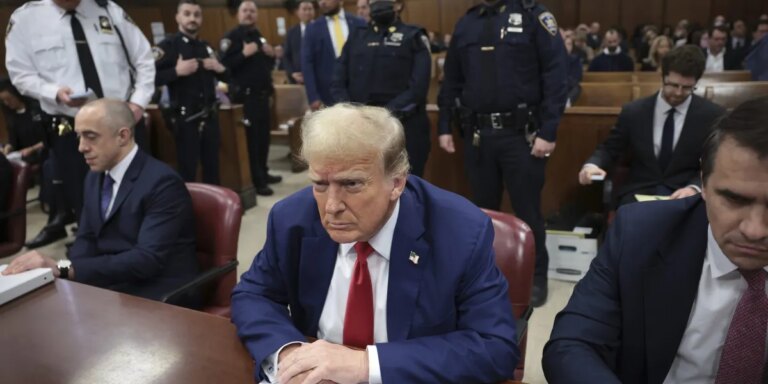In a pivotal second that underscores the gravity of the authorized proceedings towards former President Donald Trump, a decide has issued a stern warning that additional breaches of a gag order might end in jail time. This warning got here on the heels of a $1,000 high quality imposed on Trump, a determine that indicators the courtroom’s willpower but in addition raises questions on its deterrent impact given Trump’s earlier $9,000 high quality for related violations. Such developments mark a big chapter in a case deeply enmeshed within the monetary intricacies and alleged cover-ups inside Trump’s 2016 presidential marketing campaign.

The guts of the case revolves round intricate monetary transactions, together with a $130,000 fee to grownup movie star Stormy Daniels, meant to suppress claims of a earlier relationship with Trump. These transactions, detailed meticulously by the testimony of Jeffrey McConney, the Trump Group’s former finance director, shine a lightweight on the complicated mechanisms allegedly utilized to disguise these funds as authorized charges—a transfer prosecutors argue was unlawful.
McConney’s testimony, devoid of the private drama however wealthy in procedural element, gives a useful perception into the prosecution’s efforts to show what they argue was a deliberate try to control company information. This, they recommend, was aimed not solely at defending Trump’s presidential bid but in addition at obscuring the true nature of funds made to silence probably damaging tales.
Central to the prosecution’s argument is the tactic of reimbursement to Michael Cohen, Trump’s former lawyer, who facilitated the fee to Daniels. The alleged reclassification of those reimbursements as ‘authorized charges’ within the firm’s ledger is posited as an overt act of deception, a cost underscored by the absence of direct proof linking Trump to the choice to report the funds below such a guise. This nuance was additional explored by the testimonies of different key figures inside the Trump Group, shedding gentle on the organizational processes and the shortage of direct directions from Trump concerning the dealing with of those funds.
The query of Trump’s data and involvement turns into much more pronounced with the revelation that each one however two of the month-to-month checks to Cohen got here from Trump’s private account—particulars that paint a vivid image of the monetary maneuvers at play. Nevertheless, the protection’s interrogation unveiled a pivotal acknowledgment: neither McConney nor Deborah Tarasoff, the group’s director of accounts payable, obtained direct orders from Trump to label the reimbursements as authorized bills.
Regardless of the authorized entanglements and the looming risk of incarceration, the case towards Trump unfolds towards a broader backdrop of political and public scrutiny. The courtroom’s admonition towards inflammatory out-of-court feedback by Trump underscores the fragile steadiness between authorized proceedings and public opinion—a steadiness that’s additional difficult by the previous president’s pronounced public and political persona.
Because the trial progresses, with the anticipation of Michael Cohen’s probably explosive testimony, the stakes are undeniably excessive. Cohen, as soon as an in depth Trump confidante now turned star witness for the prosecution, represents a wild card whose account might sway the jury’s notion and in the end, the end result of the trial.
This case, with its complicated net of economic transactions, authorized arguments, and political implications, not solely exams the boundaries of authorized accountability for high-profile figures but in addition prompts a reevaluation of the mechanisms of justice within the face of unparalleled public scrutiny. As particulars proceed to emerge, the world watches carefully, awaiting the following chapter in a saga that might redefine the intersection of legislation, politics, and public life.
